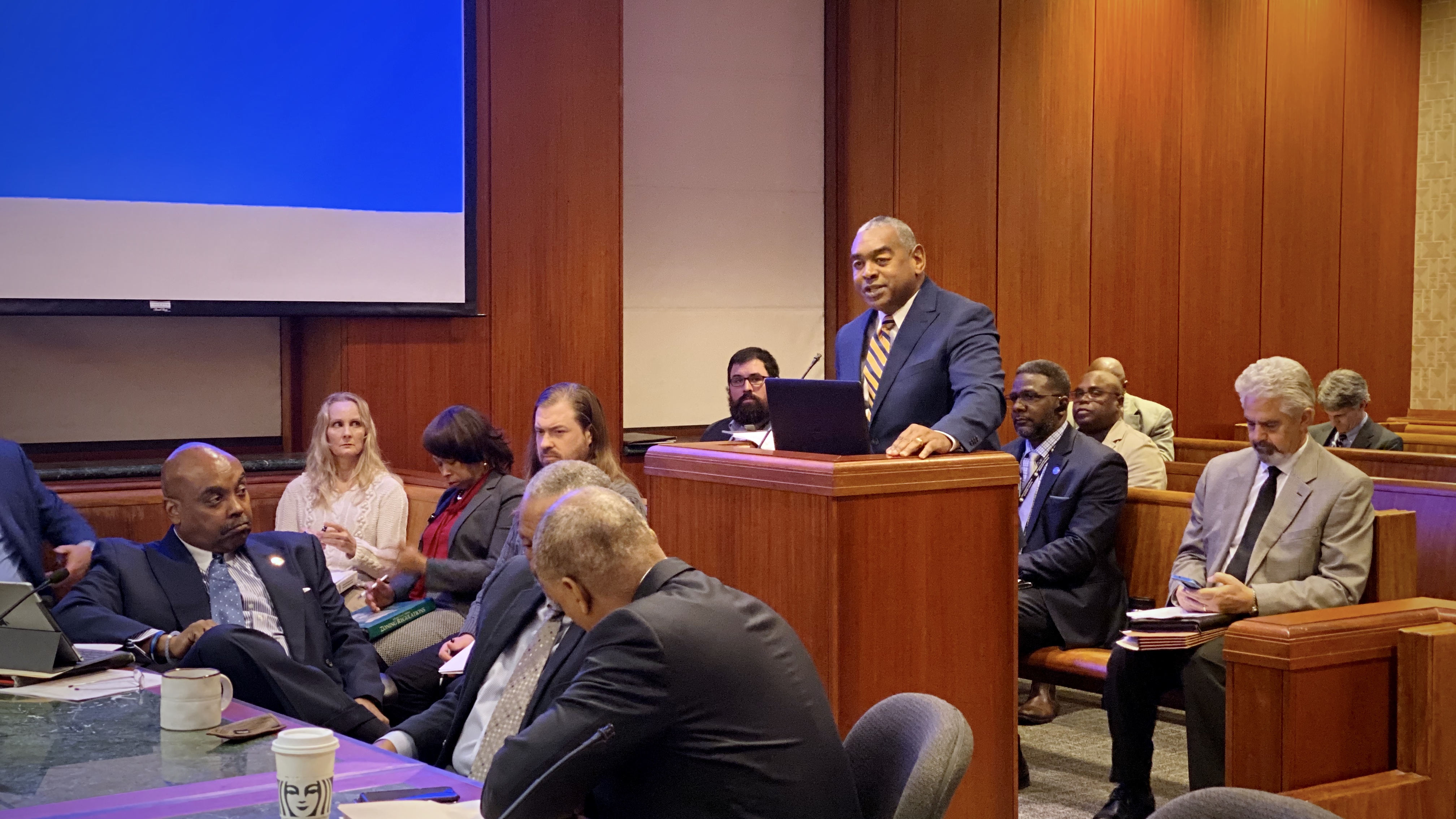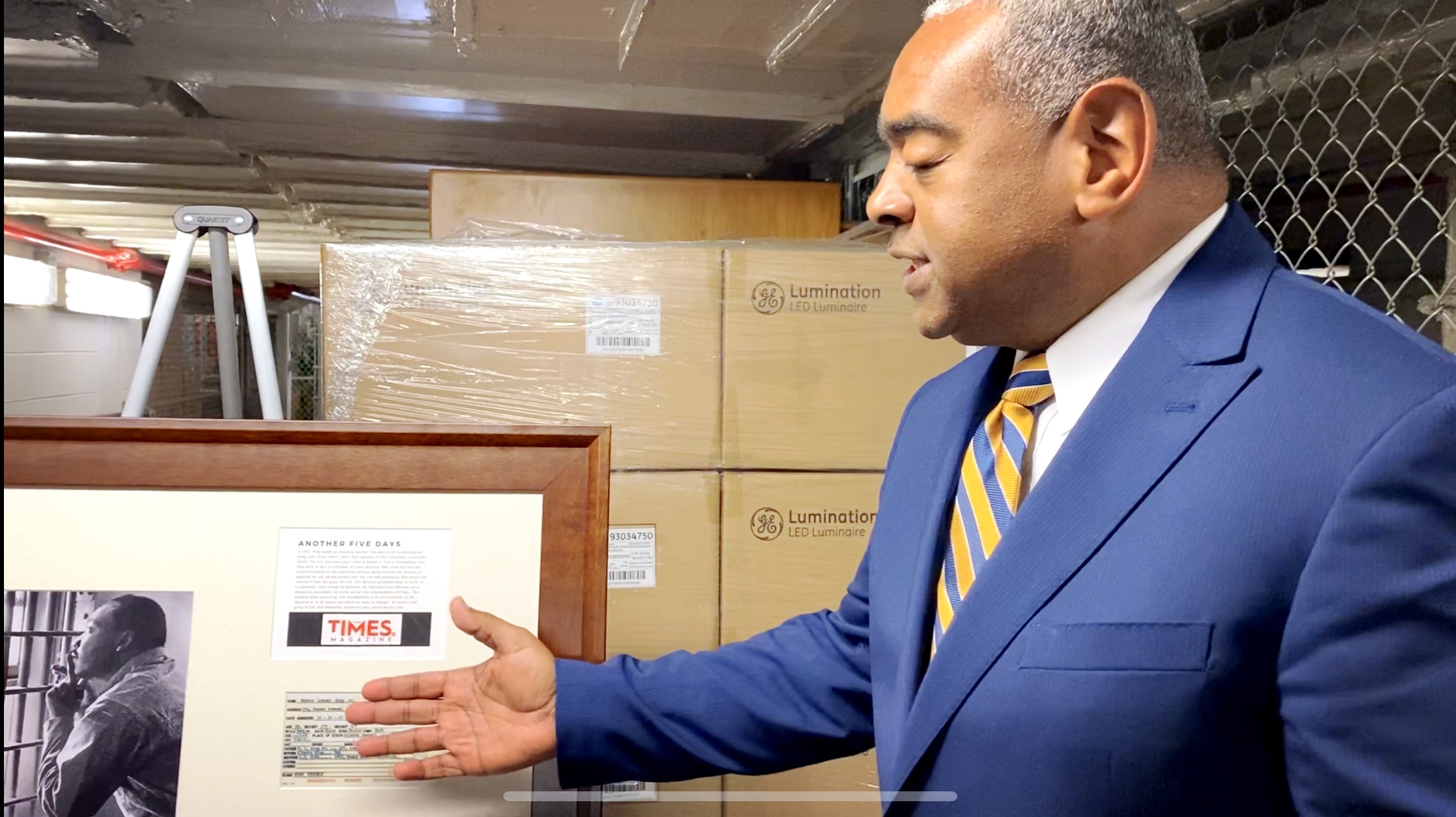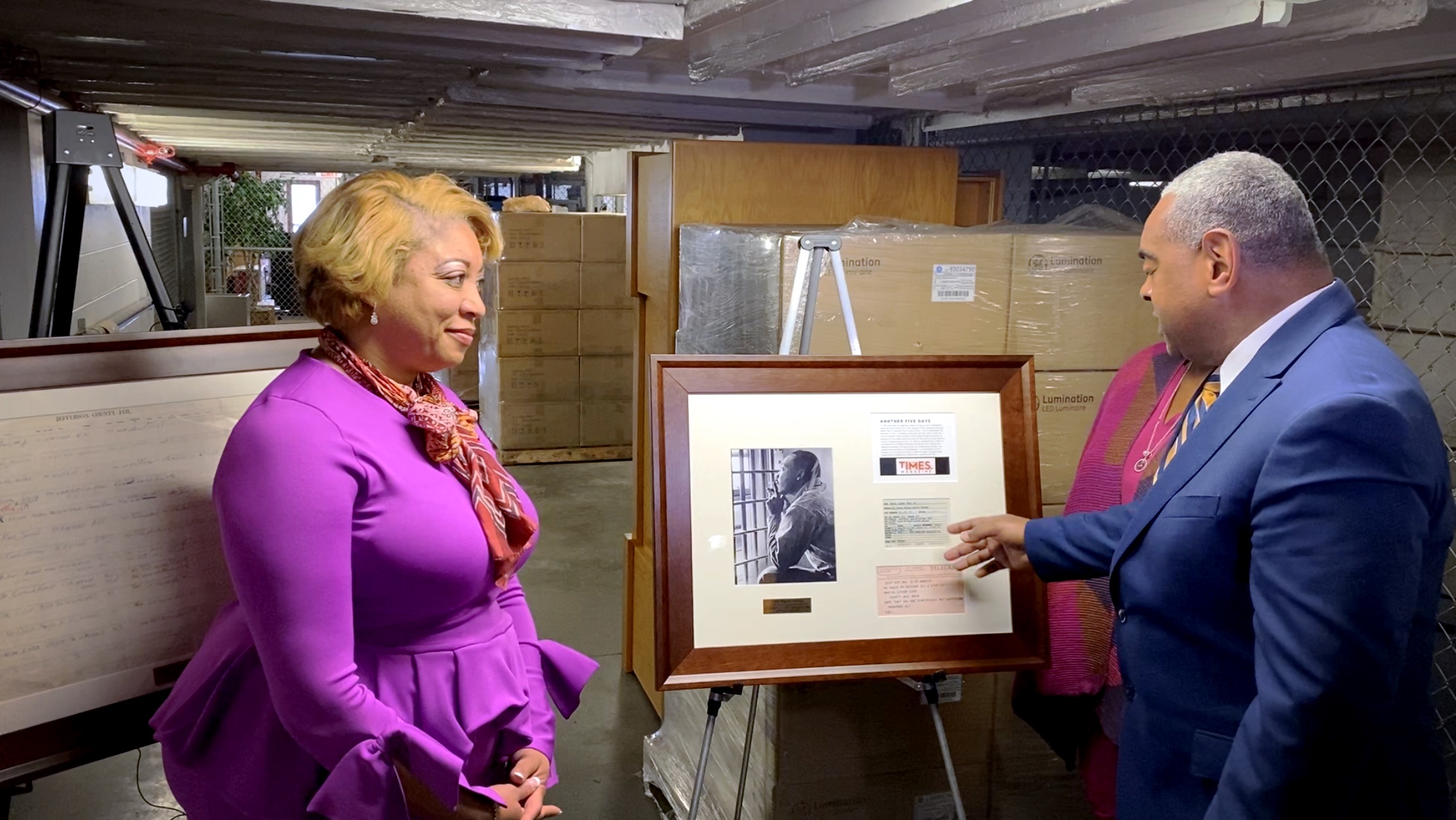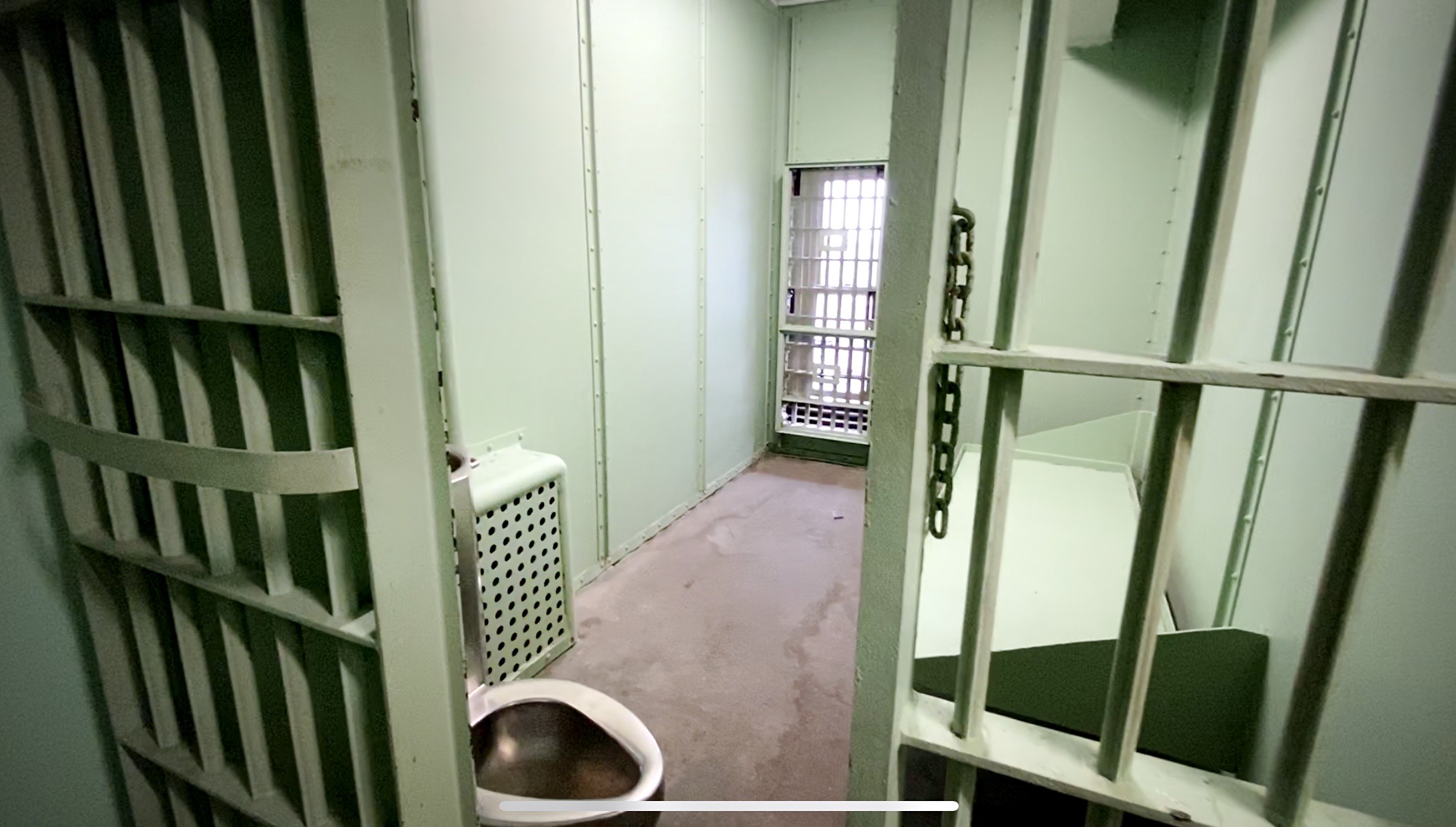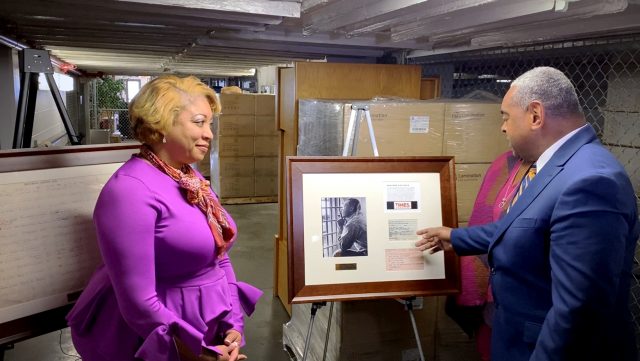
By Barnett Wright
The Birmingham Times
An often forgotten jail on the seventh floor of the Jefferson County Courthouse where Dr. Martin Luther King, Jr. served time for an act of civil disobedience will be preserved and possibly turned into a historical landmark, Jefferson County commissioners said Thursday.
The commission unanimously passed a resolution that preserves the jail area on the seventh floor “in recognition of the contributions to society by Martin Luther King, Jr. as well as the place that Jefferson County holds in the history of the Civil Rights Movement.”
History often notes King’s 1963 Birmingham incarceration where he wrote his masterpiece “Letter From a Birmingham Jail.” However, not much attention is given to King’s two-day stay in Jefferson County where he spent time after being charged in 1963 with parading without a permit and sentenced to five days. It took until 1967 to exhaust all of his appeals.
Sheriff Mark Pettway said the public needed to know more about King’s stay in the Jefferson County Courthouse jail which played a role in the history of the Civil Rights Movement.
In October 1967, King was arrested after getting off a plane at the airport and spent time at jails in Bessemer and downtown Birmingham.
“We have an opportunity to tell the full story about someone who came to Jefferson County to change the lives of all those who lived here,” said Pettway, standing on the seventh floor of the courthouse where the jail is located. “We know about Dr. Martin Luther King being housed in the Bessemer facility of Jefferson County. Also, he was housed here in this building.
“We want to make sure that that hidden treasure that is here in this building … is memorialized to make sure that the full story does not end in Bessemer but continues here in this part of Jefferson County.”
After the U.S. Supreme Court upheld King’s 1963 conviction, the Civil Rights leader knew that if he entered Alabama again, he could be arrested so he announced in his hometown of Atlanta that he would return to Birmingham and surrender. It would be the last of 29 times he was arrested on misdemeanor charges for his civil rights activism.
David Orange, a former county commission president and assistant sheriff arrested King and four others at the Birmingham airport as they exited the plane. To avoid a crowd gathered at the county courthouse in downtown Birmingham, Orange took King to the county jail in Bessemer.
King and his brother, the Rev. A.D. King, were booked into the jail in Bessemer on Oct. 30, 1967. The next day, Orange took King and his brother to the county jail in downtown Birmingham.
King was first taken to Bessemer because law enforcement officials said they feared that there might be an assassin in the crowd at the Birmingham courthouse and the change was to protect the life of King, who was assassinated about six months later, on April 4, 1968, in Memphis.
Pettway, the first African-American Sheriff elected to represent Jefferson County, said it is very important for his administration to memorialize the work of King and other Civil Rights activists.
“I want to educate citizens about the county’s history. I want the general public to better understand what the movement provided for all of us and not just a few. It was and still is a continuous sacrifice,” he said.
The seventh floor of the downtown courthouse is currently used for storage and is where air handling units for heating and cooling were installed. The sheriff and county leaders want to renew that area as a place where students and tourists can see “hidden treasures” of history — the jail cells, the docket by which King, the Rev. Wyatt T. Walker, the Rev. Ralph David Abernathy and the Rev. A.D. King were signed into the jail; mug shots of the ministers when they were jailed and a telegram to the civil rights leader from boxing legend Muhammad Ali.
Jefferson County Commissioner Lashunda Scales said it’s important to preserve Jefferson County’s history while embracing the spirit of change that now exists.
“In order for Jefferson County to truly move forward, we must first recognize our past mistakes, take corrective action, and move forward with a sincere desire to embrace people from all walks of life,” said Scales.



